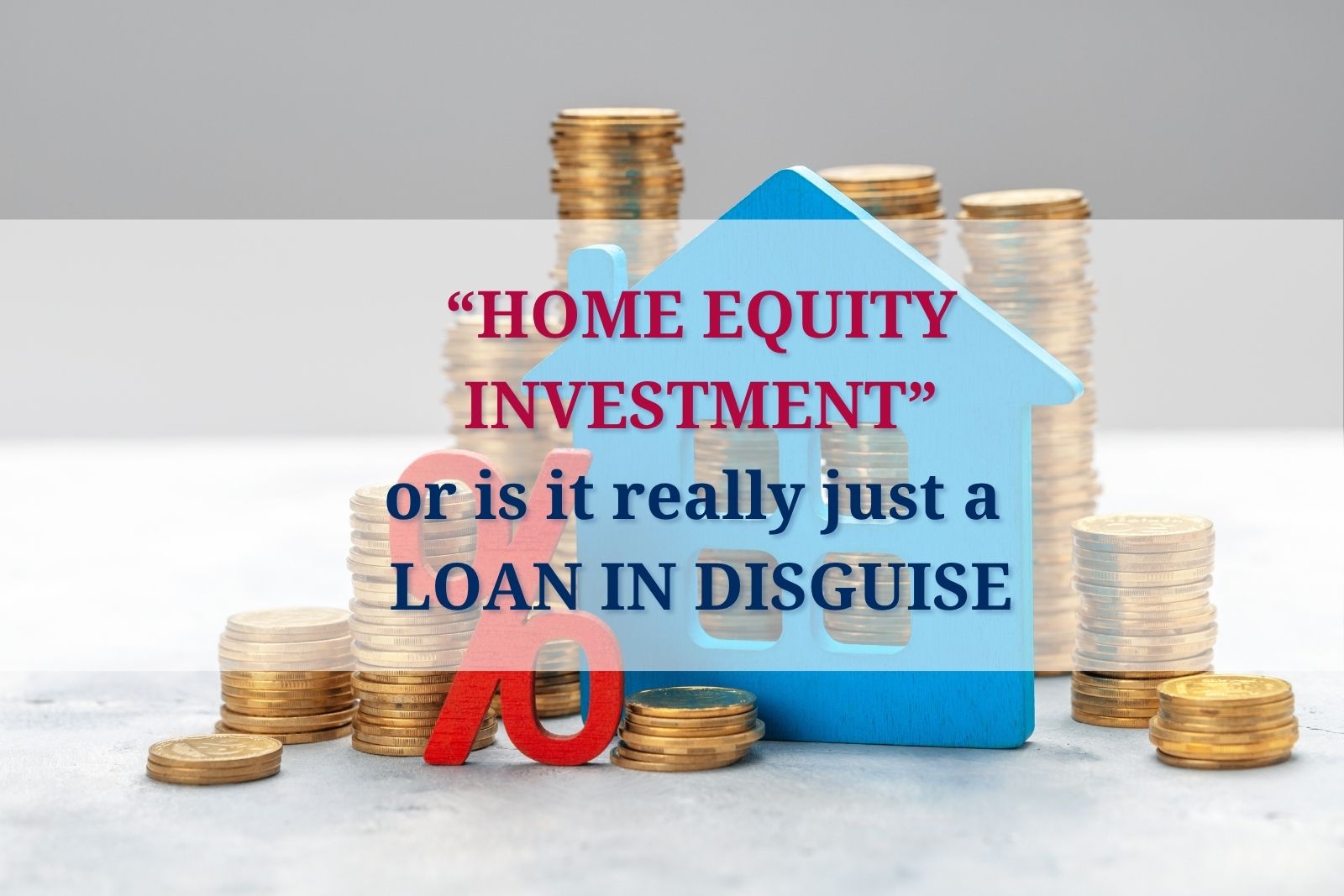Are “Home Equity Investments” Actually Predatory Loans? What Homeowners Need to Know

In recent years, a new kind of financial product has been spreading quickly across the country—promoted as a “home equity investment” or “shared equity agreement.” These companies promise quick cash with no monthly payments. They say they’re “partners” in your home’s future value. But according to multiple courts across the United States, these so-called investments are often disguised mortgage loans that can strip homeowners of their hard-earned equity.
What Is a Home Equity “Investment” (HEI)?
Home Equity Investment (HEI) companies target homeowners—especially older adults—who need cash but can’t qualify for traditional loans. The sales pitch sounds appealing: the company gives you a lump-sum payment now, and in return it receives a share of your home’s future value. The agreements often run for 10 years or more and require repayment when you sell your home, move, die, or reach the end of the contract term.
But here’s the catch: these agreements usually place a lien on your home, and the company’s share can reach 50–70% of your home’s appreciation. In many cases, homeowners don’t realize the full consequences until they try to sell or refinance—only to learn that the company can demand tens or even hundreds of thousands of dollars from their proceeds.
Even worse, the lenders often make no effort to determine whether you can afford to repay. You’re still responsible for taxes, insurance, and upkeep. The companies bear almost no risk but can reap enormous profits at your expense.
Courts Are Seeing Through the Deception
Consumers have begun to challenge these HEIs and a series of court rulings in 2025 have found in favor of consumers:
- The Ninth Circuit Court of Appeals ruled that a product offered by Unison was not a true “investment” but rather a loan subject to lending and consumer protection laws. The court held that the company’s “no interest” and “not a loan” marketing was deceptive.
- A Massachusetts trial court found that HEI lender Hometap’s contracts were unconscionable loans, violating mortgage lending and usury laws. The court emphasized that these deals are structured so the lender almost never loses money—an unfair and deceptive setup.
- A federal bankruptcy court in Colorado determined that similar agreements could be treated as loans and even rejected in bankruptcy, helping homeowners protect their homes from foreclosure.
Across these and other cases, judges are looking past the fancy marketing and focusing on substance: if it functions like a loan, it’s a loan—and it must follow the law.
How These Companies Target Homeowners
HEI lenders rely on confusing contracts, misleading disclosures, and high-pressure sales tactics. The paperwork can run over 100 pages, filled with technical language that hides the true costs. Many consumers don’t discover the problem until it’s too late—when selling, refinancing, or inheriting a property triggers repayment.
They often promise “shared risk,” but their own investor materials tell a different story: they design these deals to generate **steady, high returns for investors**, not to help homeowners build wealth.
What You Can Do If You Signed a Home Equity “Investment” Agreement
If you’ve entered into one of these contracts—or if you’re being pressured to sign one—you have rights. Depending on your state, you may be able to challenge these agreements under:
- Consumer protection or unfair trade practices laws
- State mortgage or reverse mortgage lending and usury statutes
- Fraud or misrepresentation claims
- Unconscionability and quiet title actions
- Bankruptcy protections
Many courts are increasingly open to hearing these cases, recognizing that these products are predatory loans disguised as investments.
Protect Your Home and Your Equity
Homeowners deserve to understand the true nature of these financial products. What may look like free money can, in reality, be a trap that drains the value of your home and threatens your financial security. If you were misled into signing one of these agreements—or if you’re unsure what your contract means—don’t wait until the company tries to collect.
Contact A Consumer Protection Attorney
If you or a loved one entered into a home equity “investment” or shared-equity agreement, contact a consumer protection attorney who can review your documents, explain your rights, and help you take action to protect your home and your future.
